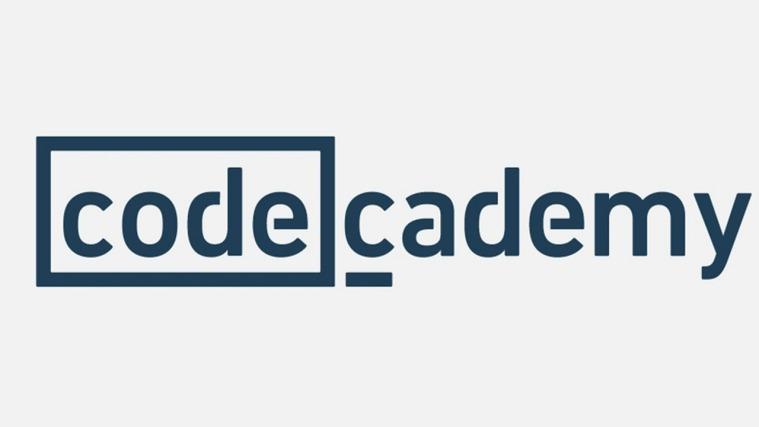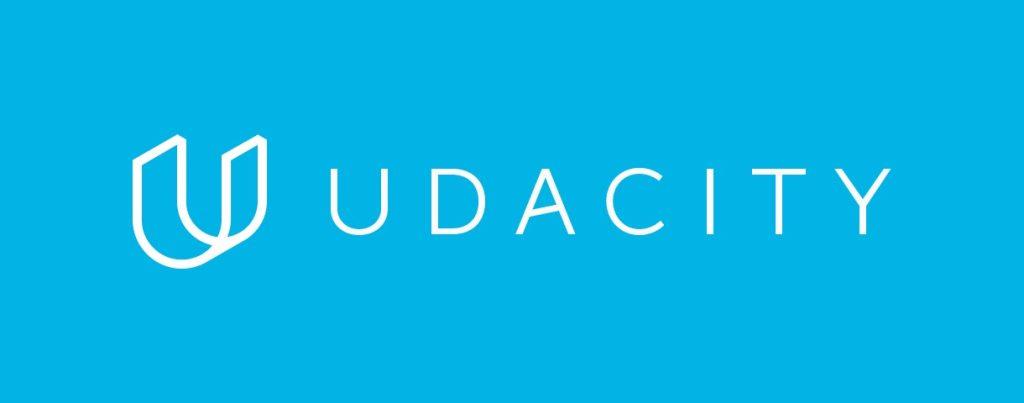Coding has evolved dramatically, and the need for effective learning platforms has surged. Choosing the right coding platform is crucial for both beginners and experienced developers. This article delves into the role of coding platforms in transforming learning experiences and presents an in-depth review of the top 10 coding platforms.
How to Choose the Right Coding Platform
Choosing the right and best coding platform requires careful consideration of various factors. The article guides readers on evaluating user-friendly interfaces, various languages and frameworks offered, community support, and pricing models for free and paid users.
Role of Coding Platforms in Transforming Learning Experiences
Coding platforms have played a pivotal role in revolutionizing how coding is taught and learned. This section explores the evolution of coding education and examines the impact of coding platforms on transforming traditional learning experiences.
Highlighted table for the 10 Coding platforms
| Platform | Pros | Cons | Pricing |
| Codecademy | Extensive Array of Coding Languages | Limited Depth in Advanced Topics | Free; Pro subscription: $19.99/month |
| Udacity | Specialized Courses with Industry Input | Higher Pricing Compared to Some Platforms | Nanodegree: $399-$1,599 |
| HackerRank | Extensive Coding Challenges for Skill Development | Interface May Seem Overwhelming for Beginners | Free; Premium: $12/month |
| LeetCode | Focus on Competitive Coding Skills | Limited Coverage of Broader Programming Concepts | Free; Premium: $35/month |
| edX | Courses from Renowned Universities | Some Courses Can Be Academically Challenging | Free courses; Certifications: $50-$300 |
| GeeksforGeeks | Comprehensive Coverage of Algorithms | Interface May Appear Cluttered | Free; Premium: $13/month |
| Coursera | Collaborations with Top Institutions | Some Courses Can Be Expensive | $39-$79/month |
| Khan Academy | Beginner-Friendly Interface | Limited Depth for Advanced Learners | Free |
| freeCodeCamp | Full-Stack Development Curriculum | Limited Depth in Some Advanced Topics | Free |
| Codingame | Gamified Coding Challenges | Limited Theoretical Content | Free; Premium: $1.99/month |
10 Best Coding Platforms – Choose Your Best
Let’s expand on each coding platform to provide more detailed information.
1. Codecademy

Codecademy is a pioneer in interactive coding education, providing an immersive learning experience for beginners. With its hands-on approach, users can immediately apply what they learn.
Pros:
Extensive Array of Coding Languages: Codecademy supports various programming languages, from Python and JavaScript to Ruby and SQL.
Hands-on Projects: The platform offers practical projects that allow users to reinforce their coding skills in real-world scenarios.
User-Friendly Interface: The intuitive interface makes it easy for beginners to navigate and understand coding concepts.
Cons:
Limited Depth in Advanced Topics: While Codecademy is excellent for beginners, it may cover advanced topics less than other platforms.
Not Suitable for In-Depth Theoretical Understanding: Users seeking a more theoretical understanding of programming concepts may find Codecademy lacking.
Pricing:
Codecademy offers a free plan, but a Pro subscription is available at $19.99/month for full access to additional features and content.
Reviews:
User reviews generally commend Codecademy for its interactive approach, but some note limitations in the coverage of more advanced content.
Website: Here.
2. Udacity
 Udacity stands out for its nanodegree programs, offering industry-relevant skills and projects. It collaborates with industry leaders to create courses that bridge the gap between academic learning and practical application.
Udacity stands out for its nanodegree programs, offering industry-relevant skills and projects. It collaborates with industry leaders to create courses that bridge the gap between academic learning and practical application.
Pros:
Specialized Courses Designed with Industry Input: Udacity’s courses are developed in collaboration with leading tech companies, ensuring they are relevant to industry needs.
Real-World Projects: Including real-world projects provides hands-on experience, making learning more practical and applicable.
Partnerships with Leading Tech Companies: Udacity’s partnerships with companies like Google and IBM enhance the credibility of its courses.
Cons:
Higher Pricing Compared to Some Platforms: Udacity’s nanodegree programs can be relatively expensive compared to other platforms.
Limited Free Content: While Udacity offers some free courses, most of its content is behind a paywall.
Pricing:
Udacity operates on a subscription-based model, with nanodegree programs costing between $399 and $1,599.
Reviews:
Reviews highlight Udacity’s career-focused approach, but some caution about the pricing, emphasizing the need for careful consideration based on individual goals.
Website: Here.
3. HackerRank
HackerRank is a platform that focuses on skill-based coding challenges, providing a space for users to improve their coding skills and prepare for technical interviews.
Pros:
Extensive Coding Challenges for Skill Development: The platform offers various coding challenges that cater to users of varying skill levels.
Interview Preparation Kits: HackerRank provides specific tools and challenges to prepare users for coding interviews.
Active Community for Discussions: Users can engage in discussions and share solutions, fostering a sense of community.
Cons:
Interface May Seem Overwhelming for Beginners: The abundance of challenges and features might be overwhelming for those new to coding.
Limited Theoretical Content: HackerRank focuses on practical coding challenges and may provide less theoretical content.
Pricing:
HackerRank is free for basic use, but a premium subscription for interview preparation is available at $12/month.
Reviews:
Positive reviews emphasize HackerRank’s effectiveness in preparing for coding interviews, but some note the potential intimidation factor for beginners.
Website: Here.
4. LeetCode
LeetCode is synonymous with competitive coding, offering users a vast database of problems to practice and improve their problem-solving skills.
Pros:
Focus on Competitive Coding Skills: LeetCode is designed for users looking to enhance their competitive coding and problem-solving abilities.
Solutions Provided for Every Problem: Each problem has detailed solutions, allowing users to understand different approaches.
Frequent Contests for Users: Regular coding contests allow users to test their skills against others.
Cons:
Limited Coverage of Broader Programming Concepts: LeetCode’s primary focus is on specific coding challenges, potentially leaving gaps in broader programming concepts.
Interface May Be Challenging for Beginners: The platform’s interface might need to be more intuitive for new coding users.
Pricing:
LeetCode is primarily free, but a premium subscription at $35/month provides additional features such as an ad-free experience and access to more problems.
Reviews:
Users appreciate LeetCode for honing competitive coding skills but suggest supplementing it with other resources for a comprehensive learning experience.
Website: Here.
5. edX
edX is an online learning platform that collaborates with top universities and institutions to offer various coding courses and certifications.
Pros:
Courses from Renowned Universities: edX provides access to courses from prestigious institutions, ensuring high-quality content.
Certifications and Degree Programs: Users can earn certifications and even pursue degree programs in various coding-related fields.
Diverse Topics: The platform covers various coding and programming-related subjects.
Cons:
Some Courses Can Be Academically Challenging: Certain courses may be academically rigorous, requiring a substantial time commitment.
Certification Costs Can Be High: While many courses are free, obtaining certifications can come with a cost ranging from $50 to $300.
Pricing:
Many courses on edX are free, but certifications and degree programs typically involve fees.
Reviews:
User reviews commend edX for its academic rigor and the opportunity to earn certifications from prestigious institutions, but some caution about the costs.
Website: Here.
6. GeeksforGeeks
GeeksforGeeks is a platform specializing in data structures and algorithms, providing extensive resources for users to practice and enhance their coding skills.
Pros:
Comprehensive Coverage of Algorithms: The platform is renowned for its exhaustive coverage of various algorithms and data structures.
Coding Practice and Interview Preparation: GeeksforGeeks is particularly useful for users preparing for coding interviews and placements.
Active Community for Discussions: The community aspect allows users to engage in discussions and seek help.
Cons:
Interface May Appear Cluttered: The wealth of content might make the platform’s interface cluttered for some users.
Limited Diversity in Course Offerings: While strong in algorithms, GeeksforGeeks may have fewer offerings in other programming areas.
Pricing:
GeeksforGeeks is mostly free, but a premium subscription at $13/month provides additional features such as ad-free access and downloadable resources.
Reviews:
Positive reviews emphasize GeeksforGeeks as a go-to platform for algorithmic practice and interview preparation.
Website: Here.
7. Coursera
Coursera offers coding courses from universities and industry leaders, emphasizing specializations and project-based learning.
Pros:
Collaborations with Top Institutions: Coursera collaborates with renowned universities and institutions to offer high-quality content.
Specializations and Project-Based Learning: The platform focuses on specialized courses and hands-on projects, making learning practical.
Diverse Course Offerings: Coursera provides courses covering various programming languages and topics.
Cons:
Some Courses Can Be Expensive: Certain courses, especially those leading to certifications, can be relatively expensive.
Quality May Vary Between Instructors: The quality of courses may vary depending on the instructor, requiring careful selection.
Pricing:
Coursera operates on a subscription-based model, with prices ranging from $39 to $79 per month, depending on the course.
Reviews:
Users appreciate Coursera’s broad spectrum of courses but recommend thorough research before enrolling in specific programs.
Website: Here
8. Khan Academy
Khan Academy provides a user-friendly platform for beginners with introductory coding courses suitable for all ages.
Pros:
Beginner-Friendly Interface: The platform’s simplicity and user-friendly design make it accessible for beginners.
Introductory Courses Suitable for All Ages: Khan Academy’s courses cater to learners of all ages, including young students.
Free and Accessible Content: All Khan Academy content is free, making it an excellent choice for budget-conscious learners.
Cons:
Limited Depth for Advanced Learners: While excellent for beginners, Khan Academy may need more depth for advanced learners.
More comprehensive than Some Other Platforms: The platform’s focus on simplicity may make it less comprehensive than more advanced platforms.
Pricing:
Khan Academy is entirely free, relying on donations to sustain its operations.
Reviews:
Positive reviews emphasize Khan Academy’s accessibility for beginners and its commitment to free education.
Website: Here.
9. FreeCodeCamp
freeCodeCamp offers a full-stack development curriculum and emphasizes hands-on projects for practical learning.
Pros:
Full-Stack Development Curriculum: The platform covers various web development technologies, providing a comprehensive learning path.
Open-Source Community for Collaboration: freeCodeCamp encourages collaboration through its open-source community, fostering a sense of teamwork.
Real-World Projects for Practical Experience: Users work on real-world projects to gain practical experience and build portfolios.
Cons:
Limited Depth in Some Advanced Topics: FreeCodeCamp may delve less deeply into some advanced topics while covering the basics well.
Self-Paced Structure May Not Suit Everyone: The self-paced nature may not suit those who prefer a more structured learning environment.
Pricing:
freeCodeCamp is entirely free, relying on donations and community support.
Reviews:
Users praise freeCodeCamp for its hands-on approach and the real-world applicability of its projects.
Website: Here.
10. Codingame
Codingame takes a unique approach by gamifying coding challenges, making the learning process engaging and enjoyable.
Pros:
Gamified Coding Challenges for an Interactive Experience: Codingame turns coding challenges into games, making learning a fun and interactive experience.
Focus on Improving Coding Skills Through Games: The platform’s emphasis on gamification enhances users’ coding skills through enjoyable challenges.
Active Community for Discussions: Users can engage in discussions, share solutions, and collaborate on coding challenges.
Cons:
Limited Theoretical Content: The gamified approach may provide less theoretical content than traditional learning platforms.
May Not Suit Those Looking for Traditional Learning Approaches: Codingame’s unique approach may not appeal to users seeking a more traditional learning experience.
Pricing:
CodinGame is free, with an optional premium subscription at $1.99/month for additional features such as private coding battles and advanced analytics.
Reviews:
Users appreciate Codingame’s unique approach to learning and its focus on making coding enjoyable. Positive reviews highlight its effectiveness in building coding skills engagingly.
Website: Here.
Conclusion
The 10 coding platforms presented in this guide cater to a diverse range of learners. Each platform has its strengths and weaknesses, making it crucial for aspiring coders to align their choices with their individual goals, preferences, and learning styles. Whether you are a beginner looking for a user-friendly interface, an enthusiast aiming for competitive coding challenges, or a professional seeking specialized courses, the world of coding platforms offers many options. Choose wisely, embrace the learning process, and unlock the doors to a world of coding possibilities.
People are also reading:
- AI Tools to Enhance Academic Research
- Best AI Tools for PowerPoint Presentations
- Best AI Tools for Teachers
- How to Become a Teacher
- How to become a government teacher in schools
Frequently Asked Questions
1: Are coding platforms suitable for absolute beginners?
Answer: Yes, many coding platforms are designed with beginners in mind. Platforms like Codecademy, Khan Academy, and freeCodeCamp offer user-friendly interfaces, introductory courses, and step-by-step guidance for those new to coding. These platforms often start with the basics and gradually progress to more advanced topics, making them ideal for beginners who want to build a strong foundation in programming.
2: Are coding platforms free to use?
Answer: Many coding platforms offer free access to their basic features and content. Platforms like Khan Academy, freeCodeCamp, and GeeksforGeeks provide extensive free resources. However, some platforms may have premium plans or offer specific courses at a cost. Users looking for additional features, certifications, or advanced content may opt for premium subscriptions, usually with a monthly or yearly fee.
3: Can coding platforms help with job placement and career advancement?
Answer: Yes, coding platforms can be crucial in job placement and career advancement. Platforms like Udacity and Coursera offer nano degree and specialization programs developed in collaboration with industry leaders. Completing such programs can enhance your skills and make you more marketable to employers. Additionally, platforms like HackerRank and LeetCode focus on coding challenges commonly used in technical interviews, providing valuable preparation for job interviews in the tech industry. Building a portfolio through hands-on projects on platforms like freeCodeCamp can contribute to career advancement.

